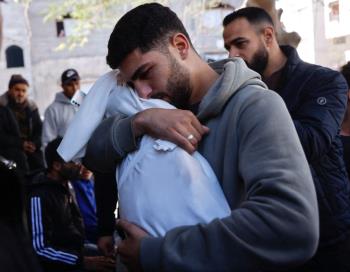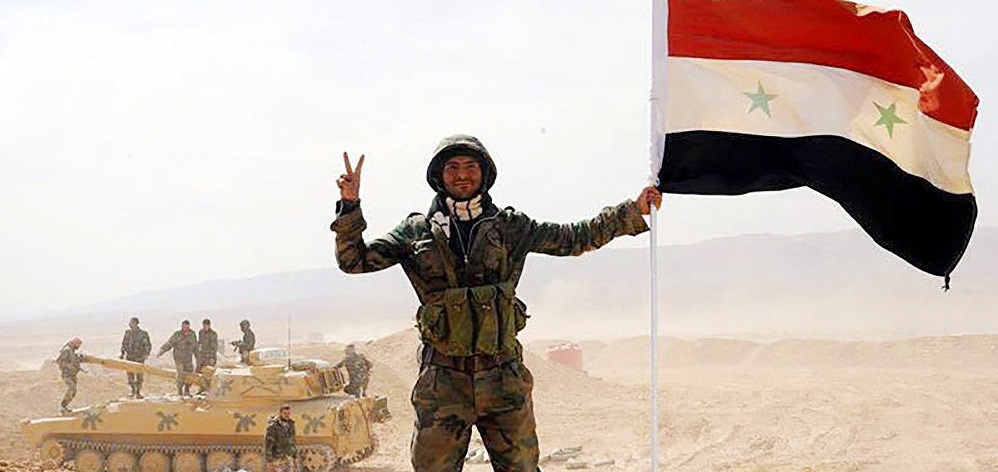Alwaght- Russia, Iran, and Turkey, three sponsors of the Astana peace initiative, met in the Kazakh capital on Friday to discuss the Syrian situation. What came out of the meeting appears to be huge and fundamental obstacles ahead of a smooth and constant move towards further cooperation to put an end to the eight-year-old conflict.
The main sticking point among the trio now is the status of Idlib, the last key stronghold of the anti-Damascus militant and terrorist groups. Idlib and its future mark the main source of disagreement among the foreign actors in Syria on both sides of the crisis. Idlib status is the decisive issue in the fate of the major remaining challenge, which is determination of the members of the new constitution committee.
The silent collapse of Idlib ceasefire
Until now, all diplomatic efforts to find a political settlement on driving out terrorists from Idlib and establishing a new de-escalation zone in the northwestern have been failed.
Turkish President Recep Tayyip Erdogan and his Russian counterpart Vladimir Putin agreed in September 2018 set up a 15-20-kilometer-long buffer zone between the Syrian army and the militant groups in the province. Also, it was agreed that the Syrian army and the foreign-backed militant groups retreat from the zone’s borders. In the first phase, they agreed, an unarmed zone around Idlib be created. In the second phase, the heavy weaponry was set to be removed from the region, and the final phase was agreed to be return to work of the Syrian government’s institutions in the province by the end of 2018.
However, shortly after the Syrian government forces’ retreat from the province, the Tahrir al-Sham terrorist organization exploited the vacuum and seized a hefty chunk of the province, adding to its wealth and power by controlling the markets and oilfields in the province. As a result, not only the civilians’ situation did not improve, but also a large number of them were displaced as the terrorists kept shelling the residential areas. The promised humanitarian aids were not delivered, toughening the living conditions due to the severe shortage of basic goods. The province is a safe haven for a range of militant factions affiliated with both al-Qaeda and ISIS.
A battle for Idlib is in the making
It seems that Turkey's failure to fulfill its promises has moved Moscow to side with a Damascus-sought military recapture of the important province.
Signs of the Russian attitude shift are apparent both in its recent political and military postures. The Russian president recently at a meeting in Beijing did not rule out resorting to a military operation to free the militant-held province. Additionally, on Saturday, Alexander Lavrentiev, Putin’s envoy to Syria peace process, defended the presence of Iranian military advisors in Syria as legitimate and Damascus-invited and called on the “illegal” foreign forces, among them the Turkish forces, to pull out of Syria.
The fresh stances by the Russian officials are in line with the Syrian government’s position which calls the Turkish military deployment on the Syrian soil an “act of occupation” and accentuates the need for rapid liberation of Idlib and other northern areas. Syria's position was reiterated by Bashar Jaafari, the Syrian envoy to the UN, during the Friday meeting in Astana, which has recently been renamed Nur-Sultan. He described the Turkish occupation worse than the Israeli regime’s because, according to him, Turkey presently occupies around 6,000 square kilometers of Syria— Afrin, Jarabulus, Idlib, and other regions. Ankara is building a 70-kilometer-long wall to in the south of Kurdish-majority Manbij town to separate it from Aleppo province.
The political stances are coming along with military moves around Idlib and elsewhere. On Saturday, the Syrian Arab News Agency (SANA) reported that in response to repeated violations of the ceasefire in the de-escalation zones by the terrorists, Syrian Arab Army’s units launched a massive attack on the terrorists' positions in a couple of villages of Hama province and its outskirts. The assaults came after in the same day the Syrian Defense Minister General Ali Abdullah declared that the Syrian forces were fully ready to reclaim what remains of territories out of the government’s control. Earlier, General Mahmoud al-Shawa, Syria’s deputy defense minister, in an interview with Russian Sputnik Radio said Idlib liberation is essential to Damascus government and the fight against terrorism is prior to the political process in the Arab nation.
The opposite front is also making its own moves. Bashar Jaafari noted that a couple of days ago, terrorist groups held a coordination meeting with a Turkish intelligence cover in Atme, a northwestern town bordering Turkey, adding that the Turkish security officials gave guidelines to the terrorists on how to deal with a possible government and allies’ campaign to take back Idlib. Furthermore, local sources in Hama and Latakia provinces on April 6 reported that Al-Nusra and Al-Hizb Al-Turkistani in northern Syria equipped their rockets with chemical material with the help of Belgian experts and distributed them for use in a staged attack. Add to these the last week attack of the Israeli regime on Hama province, targeting an ammunition storehouse belonging to the Syrian army to be used for Idlib operation.
So, the attacks on the terrorists’ defenses and positions and the underway surveillance operations by the Syrian army, as well as making the preparations for a staged chemical attack to blame Damascus for, are signaling that the situation is moving towards an imminent recapture operation as the Astana peace initiative has reached a deadlock.



























